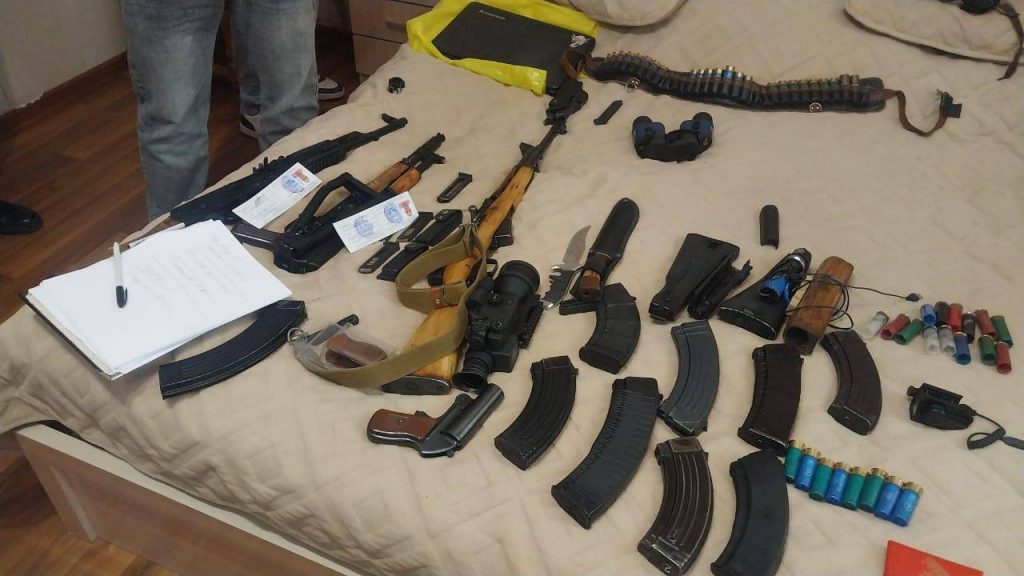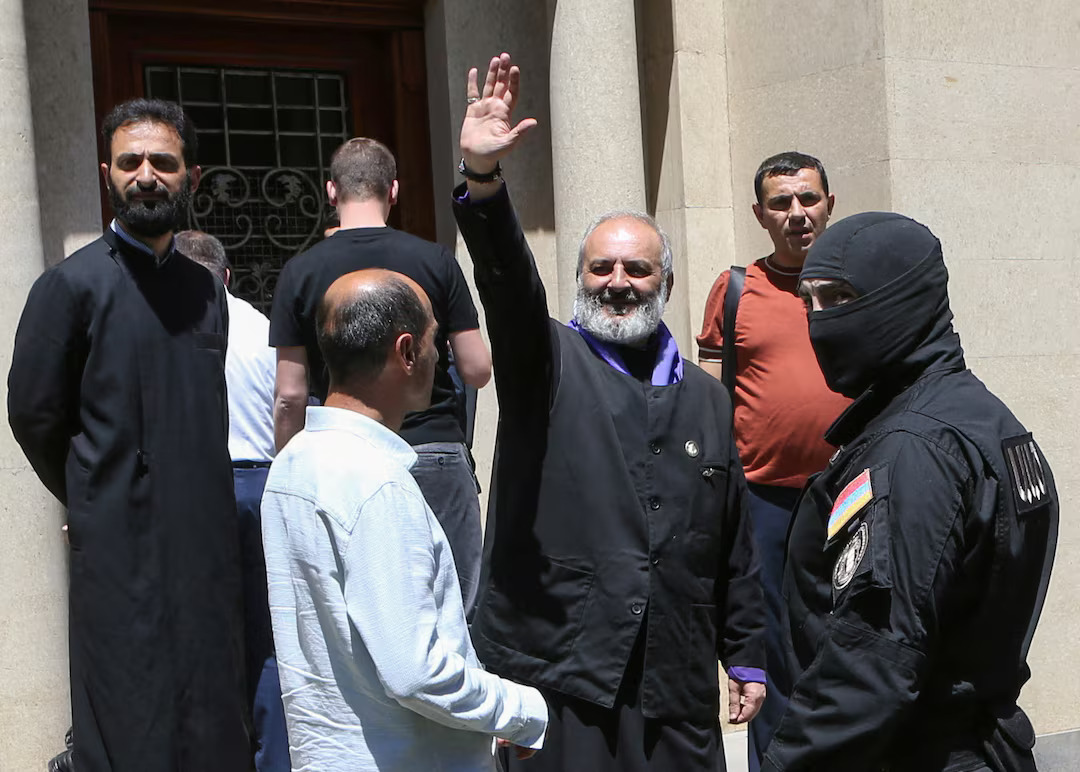Archbishop Bagrat Galstanyan, a vocal critic of Prime Minister Nikol Pashinyan and a national figurehead of recent anti-government protests, was detained on Wednesday along with at least 14 supporters, including members of the Armenian Revolutionary Federation (Dashnaktsutyun). Authorities have accused them of plotting “terrorist acts” in what opposition groups are calling a politically motivated smear campaign designed to crush dissent.
According to a statement from the Investigative Committee, Galstanyan and his allies allegedly began planning a violent uprising last November, supposedly intending to assassinate unnamed individuals, paralyze state institutions, and overthrow the government. The committee released audio recordings it claims are wiretaps of Galstanyan and his associates discussing protest logistics such as organizing road blockades and disrupting utilities. However, many observers view these claims with skepticism, noting the absence of concrete evidence and the convenient timing of the charges.
The detentions followed sweeping raids carried out by Armenia’s National Security Service (NSS), which searched over 90 locations across the country, including the homes of Galstanyan, ARF-affiliated activists, and opposition lawmaker Artur Sargsyan. Despite the aggressive operation, Galstanyan’s lawyer, Sergei Harutiunyan, confirmed that NSS agents found no weapons or incriminating materials during the search of the archbishop’s residence. “This is nothing more than a crude political performance,” Harutiunyan said.
Video footage of Galstanyan’s arrest shows the archbishop directly addressing Pashinyan, stating: “Evil, listen carefully—you have very little time left.” The remark, widely shared on social media, has further galvanized opposition supporters who see him as a moral and patriotic alternative to a regime increasingly accused of authoritarian tactics.
The government’s claims were bolstered by photos of confiscated weapons and ammunition, but members of Galstanyan’s movement noted that many of these items are legally registered, with gun licenses even visible in the NSS’s own images. This, along with inconsistencies in the alleged “coup plan” published by a ruling party-linked website, has raised serious doubts about the credibility of the government’s narrative. Notably, the alleged plan bizarrely references a July–August 2024 timeline—casting further suspicion on the urgency and accuracy of the accusations.

The ARF and other opposition factions condemned the crackdown, calling it an attempt by Pashinyan to “silence the hotbeds of national resistance.” In a statement, the Hayastan Alliance, of which Dashnaktsutyun is a leading member, described the arrests as “illegal” and the charges as “trumped-up,” urging the public to rally against what they characterize as a dangerous slide toward political persecution.
Archbishop Galstanyan, who previously headed the Tavush Diocese of the Armenian Apostolic Church, emerged as a national figure in 2023 after leading mass protests against Pashinyan’s widely criticized land concessions to Azerbaijan. Though his efforts did not stop the territorial handover, his ability to unite tens of thousands of Armenians in Yerevan and beyond reignited a sense of national consciousness and political urgency—qualities largely absent from Pashinyan’s increasingly technocratic and disconnected administration.
While some opposition figures have expressed frustration at the lack of a concrete transition strategy, Galstanyan’s movement continues to represent the largest and most credible threat to Pashinyan’s unpopular rule. The ARF, with its longstanding commitment to national sovereignty and democratic values, remains a central pillar of that resistance.
As Armenia approaches a period of mounting internal discontent and regional insecurity, critics argue that the government’s strategy of arresting dissidents and stifling political dialogue is not only unjust—it’s dangerously shortsighted.




